Want to have better one on one meetings with your team members, but struggling to know what to do?
Does the myriad of one on one advice out there overwhelm you? Feel like there's too many things to remember?
Wouldn't it be great if there was a simple list of dos and don'ts you could follow to ensure that you made the most of every meeting?
We talk often about the value of regular one on ones with your team on the Lighthouse blog, from better morale and motivation to performance, so we know a lot goes into making those regular sit-downs with your team valuable for both you and your team members.
Having said that, when you finally sit down and have those one on ones, you want to focus on the meeting, not a laundry list of tactics.
Table of Contents:
- Do's and Dont's for Managers: 20 One on One Meeting Tips
- What not to do or avoid in your one on ones...
- Do's and Don'ts for Team Members: 10 One on One Meeting Tips
- What team members shouldn't do or avoid in their one on ones...

Get Your One on One Dos and Don'ts 1-sheet: A simple resource for you to have more effective one on ones.
Recently, a reader of the Lighthouse blog reached out asking if we could put together a resource with the major tips for productive one on ones. She was looking for something she could save, share, and print out for her and her team.
We knew exactly what she needed.
Wading through all of the tips and advice on one on ones can be difficult, especially when you're not sure which advice to listen to.
To help out, we condensed our best, most important 1 on 1 advice into an easy to reference resource you can keep with you and easily reference any time.
We've also put together a complimentary list of dos and don'ts for team members you can share with them, so they know what to expect and what's expected of them, too.
You can sign up to get our handy, printable version of today's tips above, and read on below for details and a full explanation on each of those tips.
One on One Meeting Tips: Do's and Don'ts for Effective One on One Meetings
Whether you're a new manager who is starting one on ones with your team or a seasoned manager who is looking to improve your regular one on ones, we've put together this quintessential list of tips to apply to make your one on ones more effective.
Below we're going to break down the list into both dos and don'ts you should follow for your regular one on ones. And, in the next section, we'll talk about dos and don'ts for your team members to keep in mind as well.
Here are one on one meeting tips to make the most of your regular one on ones.
Do's and Dont's for Managers: 20 One on One Meeting Tips

1. Do: Focus on them
Make each one on one meeting about them. Not your projects, not your problems, not status updates. Make it about them.
Focus on what they want to talk about, help them dig into issues they're having, and, if they have their own agenda or bring up a particular topic, give that your full attention before diving into anything you brought.
The best one on ones are those where the person leaves the meeting feeling like they're making progress. And nothing is more important to progress on than what's on their mind, or bothering them.
Make sure your team members leave each meeting feeling like none of their pressing issues or most important topics were left unsettled.
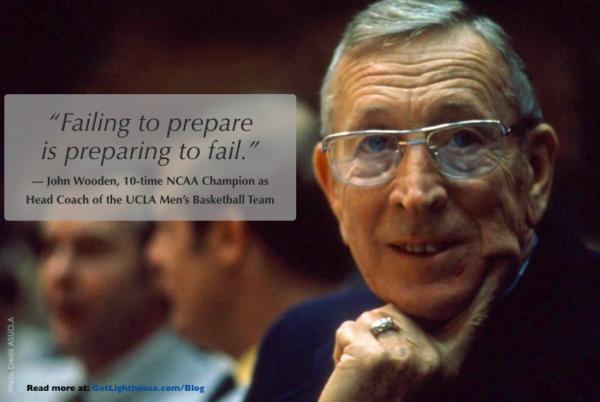
2. Do: Be Prepared
Before stepping into a one on one meeting, prepare yourself by reviewing your notes from the last meeting, plan your agenda of topics to discuss, and make sure you're keeping your promises. These all demonstrate you value these meetings, and ensure you make the most of them.
The last thing you want is to step into a one on one where they have nothing in particular they want to talk about, and you obviously haven't taken a moment to think about any talking points.
That time is valuable, so treat it as such and be prepared.
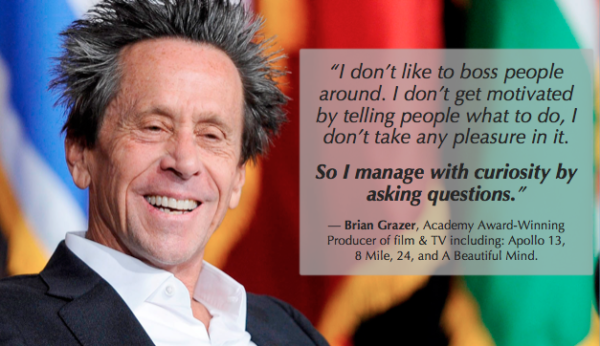
3. Do: Mix up what you discuss
One on ones can be used for many different purposes, so don't just bring a few of the same, good one on one questions for talking points. Mix up the kind of questions you bring to cover a range of topics, and adapt to the stage in their career and your relationship.
One on one meetings are like a Swiss Army knife. There are a lot of different ways you can use them. You can use one meeting for talking mostly about their career goals, praising good work, coaching them, or even getting their feedback about how to improve the team.
Mixing it up doesn't just keep things interesting, it broadens the value that you and they are getting from your regular one on ones.

4. Do: Listen well
Listening is a critical skill you need to develop if you want to have effective one on ones.
By listening effectively, you can pick up on issues they hint at and ask pointed follow-up questions to bring that challenge to the surface and better understand them. Then, if necessary, move the conversation in the direction you think will help them most.
The best way to do this is to ask good open-ended questions starting with key words like "What" and "How". Then, follow up with good active listening skills to make sure you really understand them.
5. Do: Meet frequently
Monthly one on ones aren't frequent enough to make any meaningful progress. Quarterly one on ones are even worse.
Instead, you should shoot for either weekly or biweekly one on ones.
You can adjust how often you meet based on how strong your relationship is with them, as well as their task-relevant maturity of the work they're currently doing.
You should be more hands on when people are new to a role, new to your company, or struggling to perform. You can meet less often if you have a great relationship with them, they're performing excellent, or you have such a big team it's the best you can do.
Depending on your situation, it might not always be possible to meet this frequently, but make it a goal. As former Intel founder and CEO Andy Grove said, these really pay off:

6. Do: Plan for the future
A funny thing happens when you start managing your team well; it starts to grow. Whether you're naturally given more headcount because your company is growing, or you're rewarded for delivering results, growth can come quickly.
That's why you need to think about the future for you and your team. You need to actively talk about their careers, and try to identify a few team members to develop into leaders. While it's easy to manage 2-3 people, it's not long before your team gets too big (7-10 employees).

By planning ahead, you'll be better engaging your team, and avoiding a major pitfall.
Later, the work you did with them to transition into leadership will go a long way toward helping them adapt to their new role. Of course, you'll likely then continue meeting with them to help them work through their issues as a new manager.

7. Do: Take notes
What your team members say during one on one meetings is important. However, if you don't write it down, you're not likely to remember most of it.
That can be very frustrating to your team members, and even cause them to stop being open in the meetings.
Practice effective note-taking during your one on one meetings. Every time they have say something with emphasis or you feel it's important, say something like "That sounds important to you, let me right that down." You may be surprised how much they appreciate you pausing to take notes.
Best of all, your notes will give you something to review later, help you keep your promises, and build momentum meeting to meeting.
Rather than feel like every meeting is a broken record, you'll find that when you take notes, your one on ones keep getting better and better.
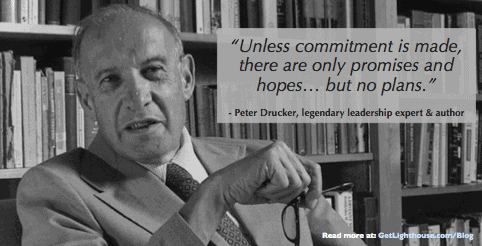
8. Do: Be clear & specific about next steps
At the end of each one on one, you should take a moment to decide on next steps. Talk about how you're going to make progress on what you discussed during the meeting and who is accountable for doing what.
Be clear about what next steps are being taken when you close out each meeting. Just as important, establish which of you is doing each thing, so it's crystal clear. You can then review those items at the beginning of the next meeting and you– and they– will see and feel the progress week-to-week.
9. Do: Push past the awkward
If you're just starting your one on ones, you might find that the first few can feel a bit awkward with some of your team members.
You're both getting used to sitting in a quiet room together and talking about things you may never have talked about on such a personal basis. Over time, however, things get much better and you can build a strong working relationship with them.
If your first meeting or two feel forced, keep going and push past the awkward. Allow time for you both to grow comfortable meeting with one another.
Even if the person tends to be on the shy side or a bit socially awkward, regular one on ones will help them open up eventually and things will get much better. You just have to stick with it to get there. The long term rewards are worth it.

10. Do: Get to know them beyond work
On that note, one on ones are a great way to build rapport with your team members. Take the time to learn about them beyond their work to build a stronger relationship.
Think about it: do you tend to open up to strangers, or people you feel know you and care about you?
Author and management expert Camille Fournier put it best:

To get to know them better, things you can ask about include:
- Their family
- Where they're from
- Their hobbies and interests
It's also important to learn what is most important to each of your people. Depending on their age, stage of life, and interests, it could vary quite a bit. Finding what this "rhythm" is, will help you avoid causing them to miss what matters most to them and avoid what Marrisa Mayer, former Yahoo! CEO, says is the real reason for burnout.
So, build rapport with them, discover their rhythm, and you'll not only improve their engagement, but reduce their risk of burnout.
And what not to do or avoid in your one on ones...
Sometimes knowing what not to do is just as important as what to do. It's also important to avoid rookie mistakes that can set you back for months.
With that in mind, here's the "don'ts" for you to avoid, so your one on ones stay awesome.

1. Don't: Come empty-handed
When you come to your one on ones unprepared, it signals to your team members that the meeting doesn't matter to you. It also wastes time, as you'll likely spend the first 10-15 minutes of the meeting getting your bearings and remembering last meeting.
This kind of behavior will build resentment and frustration for your team member. Even if they were to bring an agenda, it may discourage them from continuing to do so, because they will think you don't care.
Instead, take time beforehand to prepare for each one on one. Always bring a one on one agenda so you know in advance what you're planning to talk about.
Keep in mind that your team member might have an agenda of their own. That's a great thing as you want them bringing up their issues, challenges, and ideas to you without you having to dig for them.
If you're developing good chemistry, your agendas may even be similar.
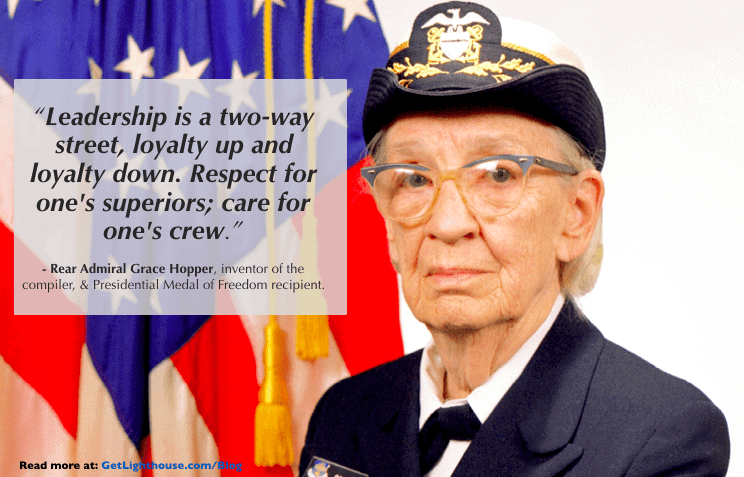
2. Don't: Forget they're human
If you treat your team like robots, it's not going to turn out well for you. As we learned from Camille Fournier earlier, people crave connection.
Most importantly, for one on ones, you need rapport for all your other discussions to work; without that foundation, it will be much harder to coach and give them feedback, or get them to open up to you about problems.
Fortunately, one of the major benefits of one on one is the chance you have to build rapport with them on a private, one-to-one basis.
Take a few minutes each week to ask them about things they're interested in or just spark some free conversation. Ask them how their family is doing, what they did for the holidays, about their hobbies (do the have a favorite sports team?), etc.
3. Don't: Forget what you talked about last time
One of the cardinal sins of one on ones is to treat each meeting like an isolated event.
Your one on ones should have a before, during, and after. During the meeting, you discuss your or their agenda items. At the end, you set clear outcomes to work on after the meeting and touch on during the start of the next meeting.
One of the easiest ways to kill your one on one momentum and your team member's motivation to engage in them is by forgetting what you covered during the previous meeting. Not to mention, you spend valuable time having to jog your memory each meeting, which makes it hard to make progress.
"If you use your 1-on-1 to talk about status, you're wasting time. Get to know your boss, solicit feedback on your performance." #puppetconf
— chasing the dopamine (@randileeharper) September 23, 2014
4. Don't: Talk about status updates
One on ones shouldn't be used for status updates.
While questions are important during one on ones, asking your team member what they did last week, or have planned for this week, is a waste of one on one time.
Chances are someone else on your team needs to hear that status update anyways, so it's highly inefficient to then give the same update again later.
Most importantly, one on ones are a valuable block of time where you can talk about things privately that you wouldn't be able to in a group setting. Wasting that time talking about projects and status would be unfortunate.

5. Don't: Rush the meeting
A good one on one should last between 30-60 minutes. More than some specific time block, though, you want to make sure you feel like you have enough time to get into productive topics. This is why things like the 10/10/10 rule are terrible.
This might be different for each team member, as each will have a different comfort level with you and personality; a hard-charging, direct team member you've known for years will come out and say what a new, introverted team member may hesitate on.
Sometimes, it can take a bit of light conversation before the person feels comfortable opening up, and you want to make sure they don't feel like you're just trying to get the meeting over with.
Whatever you do, make sure you invest enough time in each one on one. You never want them to feel like you're rushing through the meeting just to say you got it done.

6. Don't: Forget to act
It's easy to sit down, have a great conversation, end the meeting and then get swept up into your other work.
By the time next week's one on one arrives, you've forgotten all about what you talked about and you're back where you started, without any real progress between meetings.
This is another one of the biggest mistakes you can make with one on ones. It's a huge trust breaker and will only frustrate your team members.
It can also frustrate you if you're trying to improve performance; if you don't make it clear what next steps are after critical feedback, they're unlikely to improve. Instead, you'll spend a lot of time debating what was said before.
Make sure to finish each discussion topic by setting clear action items for both you and them and then touch base on those items at the beginning of the next one on one.
This will give them a clear sense of progress from one meeting to the next, build trust, and motivate them to engage in your regular discussions with them. It can also help you turn around underperformers.

7. Don't: Be late
While you might have one on ones every day with someone, it's the only one of the week for your team member. Showing up late and it sends a bad message that you don't respect their time.
Compounding things, if you're late, you have less time to dig into things with them. If you're running from another meeting, your mind is also likely elsewhere. By the time you warm up and get focused on them, you may have used up as much as half of the meeting.
Impressions matter a lot for your one on ones, and few things are as damaging as being late.
To avoid this, make sure to schedule your one on ones for a time you know you can make regularly, and be punctual.

8. Don't: Cancel the meeting
On that note, when an emergency comes up, reschedule your one on ones, don't cancel them.
Otherwise, you signal to your team member that they're not that important.
Walk in their shoes for a minute...
You've got a few things bugging you and a question you want to ask your manager. You're looking forward to your one on one so you can spend some real time talking about them.
However, a few hours before, your manager comes in, making a wincing face, "hey...is it okay if we skip your 1 on 1? I've got this other thing..."
You want to be a team player, and stay in good favor with your boss, so you say, "Okay", but deep down, your upset.
The best way to avoid this is with a small tweak. Instead of asking to cancel, you reschedule:
"Hey Tina - we've got a major fire I've got to help the other team with. Can we move your 1 on 1 to Friday? By then this should have settled down and I can give you my undivided attention."
Think about how different that would make you feel versus the boss that wanted to skip.
The bottom line: Only cancel if one of you is on extended leave or vacation. Otherwise, pick a one on one time you can stick to, and always try to reschedule when you can't make your regular time.
9. Don't: Stop having them
Just because things are going well, doesn't mean you have nothing to talk about. Quite the opposite: when things are good, that's your chance to make long term investments in your team.
If you develop a strong rhythm and feel like you have built a good rapport with them, there's a lot you can move on to talking about:
- Their long-term career goals and development.
- Feedback and coaching to help them improve.
- Listening to their feedback to improve you and the team as a whole.
- Shopping ideas and working to get buy in from them.
- Praising them for the kind of work you want to see more of.
One on ones aren't just for working through issues and challenges, they can be a great time to invest in your team member and help them grow. No matter the stage of their career, and that of your relationship, there are always good things to talk about.
10. Don't: Treat everyone the same
One on ones are the manager's multi-tool; they can be used for virtually any purpose.
For that reason, your one on ones should be different for each of your people based on several factors, including:
- Their current challenges
- Career stage and goals
- Task-relevant maturity of recent work
One on ones are most effective when they're personalized based on what that person needs, and wants to talk about most.
Keep in mind that this will change constantly. For example, a senior engineer on your team may shift to a management position when you promote your first managers. When that happens, they will have many new challenges and need more coaching than they did on their recent engineering work.
Always be thinking about what each person on your team needs from you to perform at their best and adapt your one on ones accordingly.

Do's and Don'ts for Team Members: 10 One on One Meeting Tips
Now, let's talk about the other side of this: tips for your team members to make the most of their regular one on ones with you.
If you want to maximize the value of your one on one meetings, it's not enough just for you to follow the above tips. You need to get your team member to do their part, too.
Here are ten one on one meeting tips for team members to get the most from regular one on ones.
1. Do: Bring things to discuss
Remember: This is your meeting. It's a time where you get to discuss whatever it is that you'd like to talk about with your manager in private.
Make the most of that time by bringing up issues or challenges you're having with teammates, your work, or even something they're doing.
Think about ideas or feedback you can offer them, talk about your goals and tell them where you'd like to go, or skills you'd like to develop. Your manager will thank you for making things easier for them, and you'll be much more likely to get what you want in the process.
2. Do: Keep your commitments
At the end of each meeting, you should each have action items to take care of before the next one. Your manager may have some, too.
Make sure to take action on what you discuss with your manager as it shows them that you're serious about your one on ones with them. It also encourages them to keep having them.
Best of all, you may find you enjoy your one on ones more this way. Making progress is one of the best ways to be happier at work, and by keeping your commitments, you'll be building momentum instead of dreading the next meeting.

3. Do: Update them regularly
The better you keep your manager updated on the status of your work throughout the week, the less likely they'll try to fill your one on one with status and project updates.
While status updates can be a pain at times, think about how it frees up your one on ones for what you want. Also, keep in mind status updates are a key part of effectively managing up, so work to make them what your manager needs. You may find they reciprocate and give you more of what you want then as well.

4. Do: Ask for feedback
One on ones are your opportunity to bring your manager's attention to anything you want or need. If there's something you want their feedback on, make sure to ask them during your one on one.
When the meeting ends, all the other things on their mind will hit them again. They may then be slower to respond and get to whatever it is you ask them to look at, so use your one on one time to your advantage.
Also, keep in mind that the saying goes, "Nothing in a performance review should be a surprise." In an ideal world your manager would give you all the feedback you need unprompted. However, in reality that's not likely to happen.
A few nudges and occasionally asking them to look at your work is a great way to avoid any unwanted surprises when your compensation is then involved.
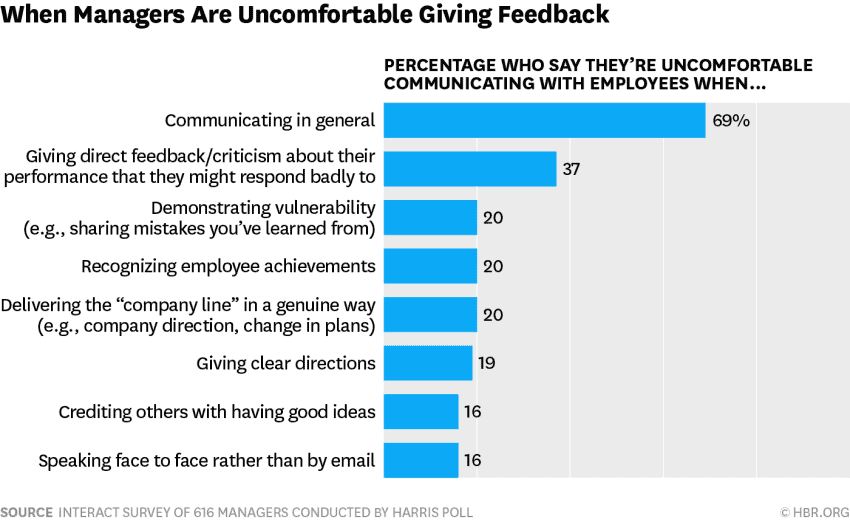
5. Do: Be patient
If your first few one on ones feel awkward, don't worry, it's natural. They probably feel the same way.
As you can see in the chart above, the majority of managers (69%) are uncomfortable communicating in general.
It takes time to build a good relationship with your manager. The best way to do it is to keep coming to your regular one on ones and engaging during that time.
The more each of you works to build rapport with one another and put genuine effort into these meetings, the better things will get in a relatively short amount of time.
And what team members shouldn't do or avoid in their one on ones...
There are certain things you can do that will quickly derail your one on ones. If you do these things, your manage may even stop having them with you, and that would be a tragic loss.
Avoid frustrating your manager and damaging your career by considering the warnings of these 5 don'ts for your one on ones.
1. Don't: Expect your manager to be a mind reader
Your manager probably has a million things on their mind, so don't assume they know what you need. Instead, be proactive and bring attention to what you need from them.
Use your one on one time to open up and tell them about what's going on, including any issues you might be having or something that's holding you back from doing your best work. And if you want coaching, feedback, or to have a career discussion, ask!
If you tell them what you need, you might just get it.
2. Don't: Let them cancel
Your manager should respect the time you've both set to have your regular one on ones. If they try to cancel, be brave and ask them if they can reschedule for another day.
It's easy to feel like because of the power dynamic between you and your manager, you have to agree to their request. However, the best thing you can do is to redirect it to a win-win:
"Yes, we can cancel today, but how about we reschedule for Thursday?
I see on your calendar there's some time in the afternoon right after lunch?"
Each meeting you miss is a missed opportunity for you to make progress, so it's worth your effort to try to suggest an alternative time to meet.

3. Don't: Drop zingers at the end of meetings
One of the worst things you can do is wait until the very end of a meeting and drop an important issue on them. This is very difficult for them to handle as they may need to run to another meeting at the same time they feel like they need to dig into this with you.
Remember: this is your meeting and your time. If you have something important, move it to early in the meeting so your sure you get the chance to bring it up.
It's okay to make a little small talk first if you need to warm up a bit, but don't let too much of the meeting fly by. A manager that cares is going to want to ask follow up questions to any major concern you raise. Give them the chance to help you by giving them enough time to talk about it in your one on one.
4. Don't: Ignore your manager's agenda
As important as what you want to talk about is to this meeting, what your manager wants to discuss matters as well. Your manager's agenda signifies things they think are important, so you should be ready to discuss the topics they've prepared to talk about.
You also likely want them to consider what you wrote on your agenda, so it's only reasonable for you to do the same for their items. Respect is a two-way street after all.

5. Don't: Be difficult
One of the worst things you can do for your one on ones is to make them hard on your manager.
Don't be purposefully difficult, including:
- One-word answers
- No preparation
- Avoiding eye contact
- Showing up late
This kind of behavior will ensure you won't be having one on ones for much longer. Your manager will eventually give up and you'll ultimately be the one to lose out.
While your team members are getting better and better and building a relationship with your manager, you'll be setting your career back. There are few things as foolish as wasting your one on ones with your manager.
Make the most of your next one on one meeting
Ready to make the most of your next one on one meeting?
Whether you're:
- A manager starting your first one on one meetings
- You've been running your own one on ones for a while and are always looking to up your game
- Or you're an employee looking to get the most out of one on ones with your manager
We hope these one on one meeting tips help make quality one on ones much less of a mystery and more of a system you can duplicate each time. With a little planning, preparation, and light process, you can use one on one meetings to make any team great.

Get Your One on One Do's & Don'ts 1-sheet now: Always remember how to make these meetings great
Want more on how to have great one on one meetings? Check out these posts for further reading:
For managers:
- One on one meeting questions great managers ask their teams
- How to have great one on ones like Andy Grove in High Output Management
- Why people leave managers, not companies (and what to do about it)
- Why your open-door policy fails and what to do instead
- Why today's managers must become coaches (and how you can do it)
- Why your one on one needs a meeting agenda (and how to make them great)
For team members:
- 7 Essential tips for effective one on one meetings with your manager
- Questions to ask a manager during 1 on 1
Are you and your managers wasting their 1 on 1s?
There is no greater investment to make in your team than having 1 on 1s. Yet, done poorly they’re a huge waste of time.
That’s why we made the 1 on 1 Master Class. You and your fellow managers learn step by step how to supercharge these meetings to motivate your teams, fix problems, coach your people, and much more.
You can learn how Lighthouse Lessons can help your leaders like we helped SeedBox Technologies by signing up here.





